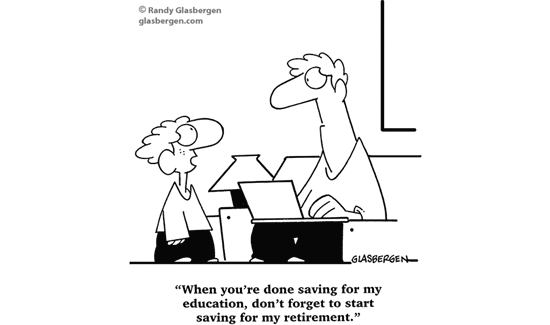
Here's my Top 10 links from around the Internet at 10:00 am today.
Bernard is back tomorrow with his version.
As always, we welcome your additions in the comments below or via email to bernard.hickey@interest.co.nz.
See all previous Top 10s here.

1. The only thing you need to know about China
China is going to have to spend NZ$8.6 tln over the next 20 years - just to absorb the expected flow of rural migrants into its cities.
Don't take my word for it - the authority on that figure is our own Helen Clark, as head of the UNDP who came up with the research (while she was in NZ, incidentally).
That's almost NZ$0.5 tln per year in spending - NZ$430,000,000,000.00 actually.
This is at the heart of why the Chinese are sure they can sustain 7%+ growth for the foreseeable future.
How they do this is going to affect us all for generations to come. The UN wants them to spend it in a way that satisfies western middle class sensitivities (all 'green', 'fair' and 'social'). Not sure how likely that is though.
“The battle against climate change, the fight against inequalities, and the response to a rapidly ageing population – to mention a few – will depend on measures taken within the context of China’s burgeoning cities,” argues the report, entitled Sustainable and Liveable Cities: Toward Ecological Civilisation.
“China is experiencing urbanisation at a speed and scale that is unprecedented in human history”, said Helen Clark, UNDP Administrator, at the report launch in Beijing. The report states that in 2011, there were more people living in China’s cities than in its countryside for the first time, when only six decades earlier a mere 10 per cent lived in an urban setting. “By comparison, this same demographic transition took 150 years to occur in Europe and 210 years in Latin America,” said Clark.
According to the report, the urban population is forecast to grow by an additional 310 million people to 70% of the total population by 2030. By this point, over one billion Chinese people will live in cities.

2. Hurricane season
Anatole Kaletsky has a sobering list. The 'good thing' when you read his piece is that not a lot of this will directly affect us. Indirectly, maybe, but it's only likely to affect us if it all goes to custard. NZ - the place to be.
This year, exactly on cue, the seasonal risks are again building up: war in the Middle East; a watershed decision in U.S. monetary policy, plus the announcement of a new Fed chairman; a German election that could make or break the euro; the long-awaited “third arrow” of Shinzo Abe’s Japanese reform program; another internecine conflict over the U.S. budget and Treasury debt limit that could result in a government shutdown or even a temporary default. And I am not even counting probable policy upheavals in China, India, Brazil, Indonesia, Turkey and other crisis-ridden emerging economies, whose timing is less certain but which could also fall within the next few months.

3. 'Abenomics for everyone'
Someone like me is old enough to remember Japan as an economic powerhouse. But for many now, it is an icon of zero-growth. But something else is happening: both China and India are now slowing. Why?
Yuriko Koike thinks she knows why. (A 1987 Kiwi clue: Roger Douglas was right. Keep reforming in spite of the feint-hearted or the cup-of-teaers will win and the drive will dissolve.)
How did Asia’s boom fade so quickly? Economics is supposedly a cold-blooded subject. Yet successful economies are prone to one of the most dangerous emotions of all: self-satisfaction, that excessive pride that Confucius condemned, which makes governments wary of reforming what has been a winning model, even when stresses begin to appear.
Japan has paid a high price for this attitude. Even after its property bubble burst 24 years ago, the authorities continued to believe that the country’s growth model needed no adjustment. The result was two lost decades of deflation and introspection before Japan finally embraced the reforms needed to kick-start a new, more open – and hence more vibrant – economic model.
China and India, it seems, have also succumbed to economic hubris. Three decades of success in China, and a decade in which India supposedly overcame the old, slow, “Hindu rate of growth,” are ending with both economies slowing precipitously. And both are slowing for the same reason: stalled reform, which is a direct result of governments being so satisfied with today’s conditions that they fail to address tomorrow’s rising dangers.

4. Today's raw market data ...
A quick new-week update:
| as at 11:10am |
Today 9:00 am |
Friday |
Four weeks ago |
One year ago |
| NZ$1 = US$ | 0.7720 | 0.7761 | 0.7778 | 0.8010 |
| NZ$1 = AU$ | 0.8691 | 0.8708 | 0.8731 | 0.7782 |
| TWI | 73.33 | 73.63 | 73.88 | 71.97 |
| Gold, US$/oz | 1,395 | 1,408 | 1,305 | 1,692 |
| Dow | 14,817 | 14,856 | 15,605 | 13,111 |
| Copper, US$/tonne | 7,095 | 7,211 | 6,950 | 7,650 |
| Volatility Index | 17.01 | 16.81 | 11.84 | 17.98 |

5. More pain coming?
The 'Great Repression' has punished savers. Now the rise in bond yields promises to do the same for fixed income investors.
The interest rate on ten-year US Treasury bonds has risen almost a full percentage point in the last six months, to 2.72%, implying a loss of nearly 10% in the price of the bond. And the recent rise in long-term rates is just the beginning of an increase that will punish investors who are seeking extra yield in long-term bonds, says Martin Feldstein. If it's up from here, what will be the consequences?
Although it is difficult to anticipate how high long-term interest rates will eventually rise, the large [US] budget deficit and the rising level of the [US] national debt suggest that the real rate will be higher than 2%. A higher rate of expected inflation would also cause the total nominal rate to be greater than 5%.
Today’s investors may not recall how much interest rates rose in recent decades. The interest rate on ten-year Treasuries increased from about 4% in the mid-1960’s to 8% in the mid-1970’s and 10% in the mid-1980’s. It was only at the end of the 1970’s that the Fed, under its new chairman, Paul Volcker, tightened monetary policy and caused inflation to fall. But, even after disinflation in the mid-1980’s, long-term interest rates remained relatively high. In 1985, the interest rate on ten-year Treasury bonds was 10%, even though inflation had declined to less than 4%.
The greatest risk to bond holders is that inflation will rise again, pushing up the interest rate on long-term bonds. History shows that rising inflation is eventually followed by higher nominal interest rates.

6. Hydrogen fuel from sunlight - another step
Photosynthesis is a natural miracle, one we understand but can't duplicate efficiently.
The earth receives more energy from the sun in a day than it uses in a year. Serious research is underway trying to produce hydrogen directly from the sun's rays, and it looks like some progress is being made. Energy storage is the goal. More from the Berkeley Lab involved:
While artificial photosynthesis can be used to generate electricity, fuels can be a more effective means of storing and transporting energy. The goal is an artificial photosynthesis system that’s at least 10 times more efficient than natural photosynthesis.
“In coupling the absorption of visible light with the production of hydrogen in one material, we can generate a fuel simply by illuminating our photocathode,” Moore says. “No external electrochemical forward biasing is required.”

7. 'The most pernicious cliché of our time'
A word has invaded the linguistic ecosystem that is so insipid, so insufferable that it must be stopped. The word is “disruptive”. Well that's what New Republic science editor Judith Shulevitz thinks.
She seems so threatened by change, she has written a deliciously acerbic reaction: she doesn't like disrupters, especially of the public institutions she admires. But she might have a point too ...
For one thing, they possess an almost utopian faith in technology: online or “blended” learning; massive open online courses, or MOOCs; cool health apps; and so on. Their convictions seem sincere, but they also coincide nicely with the interests of the Silicon Valley venture-capital crowd. If you use technology to disrupt the delivery of public services, you open up new markets; you also replace human labor with the virtual kind, a happy thought for an investor, since labor is the most expensive line item in all service-industry budgets.
Second, Christensen and his acolytes make the free-market-fundamentalist assumption that all public or nonprofit institutions are sclerotic and unable to cope with change. This leads to an urge to disrupt, preemptively, from above, rather than deal with disruption when it starts bubbling up below.
Third, they don’t like participatory democracy much. “The sobering conclusion,” write Christensen and co-authors in their book about K–12 education, “is that democracy ... is an effective tool of government only in” less contentious communities than those that surround schools. “Political and school leaders who seek fundamental school reform need to become much more comfortable amassing and wielding power because other tools of governance will yield begrudging cooperation at best.”
Many well-meaning philanthropic disrupters have taken that advice to heart, and the results reveal something George Orwell pointed out, which is that stale phrases mechanically repeated have dangerous political effects. It is too soon to see how disruption will play out in public-health and government agencies, but what it has done to public schools is now becoming clear.

8. RT is no ordinary news organisation
Available on our SkyTV and the internet, RT is a fast growing international broadcaster. But RT stands for "Russia Today" and yes, its a directly funded organ of official Moscow. Much more subtle than its Soviet counterpart, it differs from other public broadcasters in that it only pretends independence.
I wonder what the commercial underpinning is for SkyTV to run RT here. Cash from Moscow?
Most public broadcasters seem captured by the politics of their staff (BBC, NPR, ABC, VoA, etc.) but RT is captured by the politics of their paymasters. It's a dominance the Kremlin is pleased about, reports Spiegel Online:
Since 2005, the Russian government has increased the channel's annual budget more than tenfold, from US$30 million to over US$300 million. Russia Today's budget covers the salaries of 2,500 employees and contractors worldwide, 100 in Washington alone. And the channel has no budget cuts to fear now that Putin has issued a decree forbidding his finance minister from taking any such steps.
The Moscow leadership views the funds going to the channel as money "well invested," says Natalya Timakova, the press attaché to Prime Minister Dmitry Medvedev. "In addition, Russia Today is - and I hope the Germans will forgive me for this remark - significantly more modern than Deutsche Welle, for example, and it also has more money."

9. Common sense
A [former] economic adviser to Joe Biden makes some interesting points about minimum wages. He thinks something’s broken in an economy that serves up low wages to significant numbers of adults whose families depend on their earnings while profits are rising. And the benefits to low-wage workers far outweigh these costs when policy adjustments are made.
Workers spending more increases the velocity of money and businesses gain. Granted there are some tricky tradable/non-tradable issues for an open economy like New Zealand, but companies are proving that they can grow in spite of a high exchange rate, especially when they are committed to productivity and innovation.
I think we do need to be committed to ridding ourselves of low-paid-and-dead-end jobs. But too-low incomes anywhere cost everyone, not just the low-paid. It's like investing in preventive healthcare. It's obvious.
This is all just capitalism, and I’m all for it. But market failure is also a hallmark of capitalism, and those purporting to hold forth on the economy have a responsibility to recognize such failures, particularly when they violate norms of equity and opportunity.
If significant portions of some industries pay wages on which grown-ups cannot support a family, while other industries post historic profits, and, importantly, the gains to the latter fail to ever reach the former, then corrective policy is needed. Some of that should be done through wage subsidies and work support (for example, the earned-income tax credit, and health and housing support), and some should be through moderate increases in the minimum wage.
To me, that’s not radicalism. It’s plain common sense.

10. Today's quote
"More and more these days I find myself pondering how to reconcile my net income with my gross habits." - John Nelson

81 Comments
#9 JK would disagree - living wages are all the "un-"s - unworkable, unbelievable, unrealistic;
http://www.stuff.co.nz/national/politics/9114732/Living-wage-plan-unworkable-unbelievable
High Exchange rate- not a sound from the Right
High Rents, land prices- not a sound from the Right
Raise minimum wages and stop taxpayer subsidies for landlords/employers and the screaming from the Right is deafening
#6. Hydrogen from sunlight. Direct even. Wonderful. And then into your hydrogen powered internal combustion engine. Think it through.
Don't tell 'you know who'. He will be grumpy.
Indeed you missed the "think" bit. So think it through, lets see,
What could effect such biofuel production, oh AGW, weather events, brought, flood, storms, bugs,
"Bionic leaves that could produce energy-dense fuels from nothing more than sunlight, water and atmosphere-warming carbon dioxide, with no byproducts other than oxygen, represent an ideal alternative to fossil fuels but also pose numerous scientific challenges."
Looks at the weasel words "could"
"numerous scientific challenges"
So not production ready, I take you back to "could"
Did you see the word "organic" in there? it sort of implies it with, "produce energy-dense fuels from nothing more than sunlight, water and atmosphere-warming carbon dioxide" but we produce most crops today with huge fossil fuel inputs...
"Where do we grow them? ie displace food for humans? let mexicans starve as Americans do now?"
hmmm, yes, think it through, let me know how you get on getting around even these few issues.
Oh and throw in where does the water come from....aquifiers are dropping now.
regards
What a dark and tawdry theatre you own plot plays out in.
Explaining everything in exhaustive detail and yet missing everything important. Universal only in the sense you take one thin explanation and stretch it very far. But although a pattern can extend very far it is still a small pattern. Seeing a chess board white on black, and if the universe is paved with it, it is still white on black.
Like the lunatic you cannot alter your standpoint ; cannot make the mental effort required to suddenly see it black on white.
actually, no I think Im seeing it pretty clearly...
Simple, I change my opinion when facts change, there are no facts in the above piece on bio-fuel, there are some could's, maybe's and no costs no EROEI.
regards
I think Im seeing it pretty clearly...
Of course you do. In fact you must, even a madman must be sure he is sane.
Go look at the decline is the rate of population growth Ralph, that supports Stevens view and says that cheap energy ran out 50 years ago. Raw numbers you can't argue with. Give up the fanciful idea of finding cheap energy, you have had 50 years and still haven't done it. Might be time to put a plan B in place eh?
Scarfie, I do not question there has been *an* explanation. And it does, to some degree explain. But the very simplistic completeness of it reveals how much it misses. The world is become a shrunk, narrow, mental prison bereft of everything that matters and explaining nothing of importance.
It is in the nature of the mental prison that it cannot be wrong. The construct is as real as the prisoner it creates. As I said to steven, even a madman must believe he is right. The mind that constructs a closed box cannot allow anything from outside to challenge it. Even the very idea of an idea from outside the box cannot be allowed to exist. That is why 'fact' must be pre judged to fit inside the box and thought bent to finite terms.
But it's a sad desert of a place without hope and poetry, without spirit, courage or heroic endeavour. It's a dark fatalistic place where all spark of life must be crushed until no humanity is left. Mystery must die and even kindness is just as likely to become cruel as kind.
And over the cell of this self constructed prison is are the dreadful words, "He believes in Himself."
Hmmm. So I wonder how you desribe to process that got us to where we are, deep in overshot mode? The consequences won't be poetic.
But yes joy must be found in the little things.
haha. Got it wrong again. Should have said "they will be grumpy."
Yes, you got it wrong.
Again.
And appear to have joined the ranks of those who would use emotive terms.
Yes, solar energy is where we will end up, by default. Yes, we should therefore go there with all speed, before we run out of the grunt to do so. Yes, I've been to the odd lecture about using portions of plant DNA to do photosynthesis, and it's impressively efficient. No, I don't think we'll ever see 10X plant efficiency. No, I don't think it develops and scales in time. Energy storage - and losses incurred - is indeed a problem. Low EROEI vectors like hydrogen, may well work - so do undershot waterwheels - , but fiscally and work-available wise, won't support BAU. None of the electricity-producing alternatives do the feedstock thing, either, although if global energy was 100% renewable, it is true FF feedstock would last a while.
http://ec.europa.eu/governance/impact/planned_ia/docs/2013_rtd_004_fch_en.pdf
good luck to them
http://www.physics.otago.ac.nz/eman410-energy-policy-seminar-series
you should have come along.....
But then, BAU is already unsustainable. It is important to clutch at the best of the available straws, but important to identify them as such. Without emotion. :)
haha. I did get it right. Sure enough Mr Grumpy showed up.
#6 Anyway, lovely hydrogen producing solar panel on the roof. Looks like the PV one next to it. Little tube running down from it to the hydrogen storage unit next to the barn Inside, a lovely hydrogen powered car sitts next to the hydrogen powered tractor. Such elegance could be very distressing for you I know.
But maybe not. I take your comment above as positive what was described in the link above could be the future. cheers.
... ahhh KH , you've stirred up both of the Grumpy Twins today ... good work , friend !
Absolute genius KH .. one small issue though .. have you solved the problem of delivery and storage containment yet? you will be a trillionaire next
Personally no. Takes me all my time to keep the irrigation coupled up. But it's only a problem of the right materials, mechanism and systems. Someone will.
We have vast systems around petrol, and community awareness of it. Like don't light a match to look into the tank.
Hydrogen in this system is generated off your own barns roof. No billion dollar refineries, supertankers, So none of that to deal with means only a small list of problems.
Also, we have been coming to grips with how to deal with petrol for well over 100 years. So any new thing will evolve over time. 100 years and some petrol cars still blow up.
I'm not the expert on this subject, so I'm giving it to you second hand.
But my guy is the ultimate authority
He says that Hydrogen is the most volatile gas available. It is the most difficult gas to contain and store. He uses the words "almost impossible". The problem is getting the gas from your roof top down to your storage tank. You would have to compress it or liquify it. The hoses and pipes and couplings and the storage vessel are the problem. Wherever there is a joint or weld or coupling or link the gas will find the slightest imperfection or fissure and escape. A compressor would be the weakest link.
The article referred to below by PDK deals with Hydrogen fuel cells where the gas is produced "on demand" and used immediately where storage or containment is not a consideration.
The problem of containment has yet to be solved.
Thanks Icon and this is how I understand it too. But it's not impossible.
California had/has the hydrogen highway with filling stations. Silly thing as the hydrogen came from cracked natural gas. Thats a silly source.
But they had the cars and the systems albeit probably about 1910 in terms of comparison to petrol development.
There are companies in the US who will adapt you a hydrogen powered internal combustion car or truck.
No, you may not take it as 'positive'.
I seem to remember suggesting that you remove the emotive.
I am well aware - as a past co-chair of Solar Action, if for no other reason - that there are myriad ways to obtain solar energy. Overshot/undershot waterwheels are just two. Neither would maintain BAU in today's world, though. Neither will hydrogen. You need to investigate what happened in California, what the storage issues are, what the transportation issues are.
http://www.davidstrahan.com/blog/?p=173
Are you just taking the piss, given the physics of it, or do you genuinely believe that a powerdown of that magnitude won't see fiscal collapse and social disruption on a magna scale?
... so true , so very very true ... me brudder had a magna ... and it cost him an arm & a leg to keep the old bomb going , nearly suffered fiscal collapse himself .... woke up all the neighbours when he started it in the morning ... social disruption on a grand scale ...
Not getting another Mitsubishi ... no sirrrreeeee ! .... he's got a Jeep now ... 12 miles to the gallon ... she's a wee ripper ..
I stand corrected and should not have regarded you as positive. Sorry. Thinking you had made a positive comment then was serious lapse of judgement by me, as all common taters here will atest.
It's a movie plot that's a bit tired and been done before. It would need an actor with huge screen presence to distract from the weak plot line.
Jobs interviews: Typos matter. Typos really, really matter.
http://blog.alinelerner.com/lessons-from-a-years-worth-of-hiring-data/
Typos matter...and I am thankful for interest.co.nz's edit function, where I pick up most of mine. For some reason they are never so obvious first time round.
.. and yuo get a hole hour to pick pu on yuro typso befroe your goose is coked ....
Unles some other boggler spots a peace in repyl too yous'r ...... silly brugges !
Thanks for posting that link dh.
On #8. I've been watching RT on Sky for a while now and find a lot of high quality, balanced reporting there. The so-called "independent broadcasters" could learn a lot from RT I reckon.
Compared to Fox News, well yes...
It is interesting to watch against say CNN though, I watch both.
regards
#6 - I wonder why our hydro plants, instead of spilling excess water, just keep generating and use it for electrolysing water into oxygen and hydrogen. Sell the oxygen to BOC and use the hydrogen for the new fuel-celled cars coming on line (which our Minister of Transportation sees as impractical vehicles). Seems like a no-brainer to me.
Because,
a) the conversion in EROEI terms is 1 to 1 at best, an industrial economy needs 8 to 1 or better.
b) we need all the water storage we have just to ensure we have electricity in a dry year...
no brainer?
regards
EROEI is probably worse than that, I remember it being around 0.3.
omg-wtf - that's a fair question. The problem is that the energy return on the stored/transported hydrogen, is much, much lower than the potential of water stored at height. They'd be better lifting the dam, or building a pumped-storage facility, perhaps closer to demand.
Electric cars are a better way to go than hydrogen ones, and pumped storage is just water (which you apparently have an excess of in that scenario).
http://en.wikipedia.org/wiki/Okinawa_Yanbaru_Seawater_Pumped_Storage_Power_Station
Better than many options, but EROEI not good enough to replace oil.
#9
I await with Interest your take on Labour's Living Wage promises.
Sounds like a real election-winner to me, because the inevitable result (higher unit costs, leading to higher unit prices OR margin compression, feeding into CPI and headline inflation, pain at the supermarket counter etc) will lag the immediate sugar rush. Till, whodathunk, the day after Election Day.
And the majority of voters, clamped as they are to the State Teat, have no compelling reason to take a contrarian view....or even (assuming they are capable of such a thing) an Intelligent one. So, a Shoo-in.
An Interesting subject for an Interview with, say, McDonalds or Spotless or Summerset?
Not clamped to teat, maybe more open minded to non-austrian economics. but oh no lets try and shutdown any argument that alternative more maintstream economics view points may actually be right.
There are more than a few comments that having ppl with more money to spend will boost the economy and help a recovery.
Interview, well pick say Paul Krugman as a starting point....
McDs having to charge more for theor cr*p is a good thing IMHO...price that awful stuff like tobacco off the market.
regards
waymad,
My understanding is that the 3 candidates are promising this living wage within the government sector (where my expectation is that most workers will already be over the level; and those that are not will have it topped by by WFF credits in many cases. Clearly that could drift quickly into the private sector; but not necessarily (sadly probably). McDonalds may on balance welcome the move; more of their customers could afford more of their meals.
The extra money will be spent, and mostly in New Zealand, on NZ goods and services. It does not actually have to come off someone else; and to the extent it does, if monetary policy was optimised, that someone else can be foreign goods and services suppliers.
It will be interesting to see detailed costings. My expectation is that it will be low, given reversal of WFF credits and the like; but also if the economy was looked at holistically (something the National government seems totally incapable of doing), then it is likely to be net positive by some margin.
StephenL - no offence, but it's a bit like Henry's hole in his bucket - we're back to where we started.
"The extra money will be spent, and mostly in New Zealand, on NZ goods and services"
Think about that. You shove a pile of extra proxy at folk (doesn't matter from a physics point of view who) and they expect to buy 'goods and services'. Just like that. Magic, eh? And no doubt, they'll have to have produced at least as many goods/services as are currently being produced, at the same time. Growth, then.
Sorry, this process is not guaranteed. Money is not the driver, resources and ultimately energy, are. Labour are wasting time, and none of the three seem to be what is needed in the future - all are from the past. Kate fudges things - in that cycling is 'choosing not to indulge/spend, which is different from a ;living wage'.
Globally, a 'living wage' is an impossibility, will become increasingly more so, and is hitting from the bottom up. Some choose to concentrate on little items - rupee, motorways - but it always pays to keep the big picture in perspective.
It really does seem to be something folk don't get. Or want to get. Labour are a wasted space until they become relevant.
PDK,
In a key area, I agree with you. Start with an economy's productive ability (and not with it's money, which is just a proxy as you call it, a record of wealth or income, and to a reasonable extent, a lubricant for an economy). Where we don't quite agree is whether New Zealand is at its maximum economic or even real productive capacity; and then whether that capacity is both ethically and optimally shared around. An economy can get stuck, like an engine, if the lubricant all dries up; and not just because there is not enough resource to have it go any faster. Having too much of the money concentrated in too few hands, or rather too little of it in too many hands, will slow it down, even without a resource shortage.
Part of the diagreement is about national vs global. You use the word global, and globally I suspect you are closer to the mark where a shortage of, and therefore increasingly expensive, oil will likely cause some serious shortfalls of many things in some countries in the next decade.
I would advocate us being pretty self centred nationally, (as long as we meet most/ all generally observed international treaties and norms) as that is what most other countries will be doing. Hence a focus often on the current account.
I like Shane Jones' idea of regulating basic living costs down. Lower the cost of food, rent, energy and transport and existing lower wages will become living wages. The government for example needs to announce a staged program of accommodation supplement removal and see whether rents (and/or house prices) taper back accordingly. Another is to require more bike lanes on existing roadways - thereby lowering the cost of transport by getting folks weaned off their cars and either on their bikes or onto PT. And look at the supermarkets as well - I have friends in that game that thought we'd get to exactly where we are on that when the CC allowed Woolworths to be sold, effectively creating the duopoly that we have. And easiest of course is to regulate the cost of electricity down. And then there are all the costs of compliance (licensing regimes, tax compliance etc.) that they have direct control over.
There are just so many things a government can do to lower living costs - addressing only the wages side of cost of living is just madness.
Energy costs what it costs, (except for the tax component). Food costs what it costs as we pay international prices on top of what it costs us to make.
You cant legislate away maths, peak oil, AGW or other issues.
regards
Energy costs what it costs, (except for the tax component)
Nope - hydro for example costs what it costs as a result of asset revaluations legitimating higher prices (as one mechanism anyway).
http://www.nzherald.co.nz/business/news/article.cfm?c_id=3&objectid=10863083
Food costs what it costs
Nope - not according to the growers anyway
http://www.nzherald.co.nz/nz/news/article.cfm?c_id=1&objectid=10656463
You really do need to read more widely steven.
Kate....
I'd also throw in the idea that a country should only export its economic "surplus'.
After all... the "Natural resourses" of NZ ...belong to all Nzers, ...(current and future).
Why should Nzers pay the "export price" for fish and dairy produce..??? ( When you look at our coastline.... fish could be cheaper here..?? )... Why should it be a "rich" country that determines the price we pay for NZ produced food..??
I do question the idea of regulating the "basic costs of living" down.... I don't know how that could be done without creating massive distortions..
I don't think price controls work... in a general sense....
Thou...your example about power pricing shows that monopoly type pricing can and should be regulated.... (I'd throw Multi Nationals and big Corporates into that category too)
Good point about our natural resources.
I do question the idea of regulating the "basic costs of living" down.... I don't know how that could be done without creating massive distortions..
To my mind many of the present distortions are in fact created by government. WFF is a low wage employer subsidy; accommodation supplement is a landlord subsidy; Amy Adams overruling the CC on wholesale pricing for access to the copper broadband network is a subsidy to their PPP fiber network; the govternments bailout of SCF was a subsidy to SCF investors. The list goes on.
The true irony of political ideologies is that the neoliberal prescription was sold as a "hands off" government intervention in markets - but the reality is it was a suite of indirect (and direct) subsidies in the interests of capital.
Um, Kate - food 'costs' are indeed temporary. We have seen a period (essentially since WW2) where farmers/growers have been forced more and more into being 'price takers' rather than 'price makers'. That was because there was a sufficiency of 'cheap' (easy-to-get), dense energy, to facilitate the inevitable amalgamation of farms into ever-bigger units, which immediately got hammered by the supermatkets and needed to amalgamate again.
So you end up with few folk, and often corporates, owning vast swathes of oil-fertilised, oil-mechanised, oil-transported, monoculturally-produced fodder to the now 50% who live urbanly, if not urbanely.
Producers who have circumvented this temporary aberration, have found niche outlets/customers, organic, fresh, local, being some of the more common p.o.d's.
Mixed into that, has been outsourcing of labour costs, outsourcing of environmental degradation/pollution, avoidance of addressing local degradation, incurrence of local pollution, and virtual outsourcing (Chinese water in canned fruit, for instance).
Scarcity of FF energy will hit fertiliser, mechanisation, transport, mitigation, worsen avoidance, and concurrently reduce incomes. In terms of Hydro, it will mean that anything which can run on electricity rather than FF, will. Don't expect that to mean cheaper power.
Supermarkets aren't the culprits (they reduce the price on our behalfs) here - but they're a good scapegoat. 7 going on 10 billion mouths and a depleted/depleting habitat is the driver. The way around both issues (food, energy), is to grow/produce/make your own. It's what we spend most of our time teaching/encouraging, hereabouts....
a) You dont "eat" hydro power, you eat and transport fossil fuels.
b) The marginal cost of a new power source in effect sets the overall market price.
c) Yes re-valuing is a scam...however as in b) we only produce about 65% hydro which means putting in 35% more jsut to get to present load, let alone extra from using it as an alternative that is going to cost, take time and not solve our transport problems.
Food costs, well there isnt much competiton. Now I visit the growers market and guess what their prices are similar to the shops, maybe 5~10% lower......maybe check out the supermarkest overall % profit...dont forget they have lots of overheads.
I suggest you move on from "reading" and try books with words and numbers, eg engineering, maths after that try understanding what you read, might be a bit of a haul though...
regards
MRP anyone? Shane Muldoon rides again.
I very much value Kate's contributions here, and she is usually spot on; but on some of this I agree with you, the laws of unintended consequences are to be very wary of in trying to set maximum prices in things like groceries. Electricity may be different.
A grocery duopoly on the surface might well be problematic, but my understanding was that David C runs a regular price comparison with Aussie (admittedly also a duopoly), and where our supermarkets don't fare too badly. Happy to be corrected.
I sense Countdown (Woolworths) and Foodstuffs are having a fair go at each other recently, but again, I guess it could be smoke and mirrors. Am not sure it is the best path for Labour to head down to try and interfere too much; unless they have some good evidence.
Evidence - how about year-on-year higher distributions to the coop member/owners?
Distributions to members from this year's profits, which include rebates, dividends and year-end imputation credits to be distributed to members will total $237.4m, $22m higher than last year.
http://www.stuff.co.nz/the-press/business/8841530/Frugality-fatigue-boosts-supermarkets-profit
Or on the other side of the duopoly - how about comparative data from Stats New Zealand?
We get the evidence reported daily of our hands off regulatory regime failing workers - how many times do you read about a company laying off workers one day and announcing record profit growth the next?
Globalisation has changed the dynamics of free market competition forever. Ask any banana grower :-). Markets simply do not function properly given how the corporate world has changed in the last 25-50+ years. The answer is in regulation which favours/protects labour not capital.
The evidence is a good start. Foodstuffs South Island have according to your linked paper made 237 million net profit on 2.4 billion of sales. That's a net profit figure of 10%, which is high by any standards. (Whether in their cooperative model individual store owners make more on top I'm not sure). From memory Tesco and Sainsbury's were closer to the 8% and 5% respectively quoted in your second paper. (While in the UK I worked fairly closely with Sainsbury's by the by.) The second paper I'm pretty sure confuses net and gross profits, and so should be discounted- not a great look for the Greens sadly, given they seem to have disseminated it.
From Woolworths annual report to June 13, their NZ sales were $5.7 billion, and their net profit- or EBIT to be exact, was $307 million. That's a 5.4% net profit. Close to the low marker of Sainsbury's.
Even if there is a view that that is too high (it doesn't seem so to me), the vexed question is what to do about it. My suspicion is that in the South Island there may be a fair number of examples of a monopoly, and not a duopoly, but even there I'm not sure of the best approach, other than to highlight any basket differences with cheaper towns.
I'm not sure of the best approach, other than to highlight any basket differences with cheaper towns.
Regulate!!!!
I realise this is a dirty word for some but we just need to get over the brainwashing that neoliberalism brought us. Most of the suppliers to these two chains would be happy to see it as they are getting truly squeezed whilst watching the prices to end consumers inflate.
Kate,
I'm no fan of neoliberalism and its values. But maximum retail prices have a habit of setting a minimum and maximum at the same level; they distort availablity such that you end up running out of some stuff; and they create a bureaucracy far greater than we have now. I'm not sure what other regulation works best. The Aussie government almost wanted supermarkets to increase prices so as not to pressure farmers, and you seem to hint at the same thoughts.
What regulations would you impose? Transparency as a minimum I would agree; Woolworths do seem to be disclosing their accounts. Foodstuffs seem be a bit more opaque, and could do better, arguably.
Then embarrass them if they are out of line. But the spokesman pushing for change will have to at least understand the difference between Gross and Net profit- Russel Norman will be annoyed that his representative doesn't seem to have understood it.
I'm afraid Mr Jones is out of his depth. Cunliffe is fine.
Separately I also agree with your thoughts on landlord and employer subsidies; just similarly am not sure how you get rid of them without a lot of innocent and relatively poor people getting hurt along the way.
Having done a bit of consulting in that sector, regulation would be relatively easy as they operate very sophisticated real time systems - but we have to be prepared to put overseers in to the organisations in the same way we put overseers onto commercial fishing vessels, for example. (And speaking of that we don't actually do that enough either).
It's a whole different focus - presently government focuses too much effort on being in the lives of its citizens - it needs to get in the lives of its corporates instead.
Check out this Inside NZ investigation, for example;
Which compares the emphasis we place on investigating benefit fraud as opposed to corporate fraud. Startling statistics.
These are businesses, you'd regulate them into non-existance. You cant put controllers into a business and still have it as a business, its a slave to inept Govn policy......
regards
You're like a pernicious version of Chicken Little.
You cant put controllers into a business and still have it as a business, its a slave to inept Govn policy......
Workers are the current slaves to inept government policy, steven - let me be blunt: ask any one of the Pike River miners.
Those lives and the on-going viability of that source of employment was sacrificed at the altar of your argument.
Kate,
Pike River was a probably criminally negligent act of gross mismanagement by Pike River management. While I think it is a cop out for business to say that such events were all the government's fault, it is easy enough to see that in safety management, there can be regulation and oversight that can work, and surely that now will be in place better than it was pre Pike River.
Stretching that analogy to say that workers or customers are being shafted by supermarkets first needs evidence that they are making super profits (and I don't think the evidence so far suggests they are, but if there are some other smoking guns, then fine), and secondly needs a regulatory approach that we can all understand would work. I don't think having lots of government workers in supermarkets (or even their head offices) checking on things passes that test.
Corporates can be easily embarrassed if there is a good case to do so; and they will respond. That still seems the best way to approach any super profits. First off there have to be super profits.
Who was the Labour Member who argued for it again, Kate?
Argued for what, pdk?
No, they were sacrificed at the alter of growth and ineptitude. PS they are dead, unless you believe in clarvoyance, but then you seem to believe in other loopy things I guess thats quite possible.
regards
No, steven, two survived that day - others not in the mine on the day and some who had worked there but had left specifically because of safety conerns testified to the Royal Commission. It was not so much ineptitude as it was profit before safety. Are you trying to argue otherwise?
Seems I need to repeat for some,
"No, they were sacrificed at the alter of growth and ineptitude."
http://pikeriver.royalcommission.govt.nz/Volume-One---Proposals-for-Ref…
regards
steven, after the Cave Creek tragedy;
Eventual changes in New Zealand Law, following a change of government, allowed for government departments to be held criminally liable for inadequate building practices, in the same way as non-government organisations.
http://en.wikipedia.org/wiki/Cave_Creek_disaster
Ineptitude is a very different thing. There should have been criminal prosecutions of both government managers/decision-makers who failed and the company who failed. Why did the company fail - because they were focused on profitability. Why did the government decision-makers fail, because underresourcing and not acting was in the interests of capital.
Well we are drifting off context here. So study the commission the ineptitude of regulation and its enforcement carries a some of the blame....
This however has no bearing on micro-manageing some shop holders out of their 5% profit.
I mean they make 5%
Say the average shopping list is $300, so their profit per customer is $15....and thast probably on the higher margin goods like wine and beer....
So what are you going to do? chop their 5% to 2% and save ppl $9?
crazy
Spend the effort at the big margins/costs, rent and house costs, 50% over teh top.....cut that back and there is a huge amount of $s in ppls pockets.
I mean they make 5%
The net profit expectation way back when I was exposed to the supermarket trade was a bottom line of 1-2% as it was 1-2% on very high turnover. And reconsideration of the need or otherwise to regulate the industry would not necessarily be aimed solely at the price of food. Much more important issues are supplier margins and worker wages/conditions. Fair trade.
While I mentioned the figure was 5.4% EBIT, I then did imply that was net profit. But it would be before tax- so probably 3.5% after tax. Any interest charges would also come off, if they have any debt- which they are bound to have. So maybe you could squeeze them down a percent; but there's not much in it really. Their report talked of NZ food inflation being 0.2% for the year, so they haven't been putting prices up much. Good to keep an eye on their relative prices; but otherwise Labour are best checking out some other rabbit holes.
1 to 2% on investing such large sums of money, makes no sense, they could put it in Govn bonds or bank accounts and earn more interest for little effort and almost no risk.
5% return is about the minimum I'd consider acceptable for the level of risk and investment.
regards
Nooooooo. It's 1% gross margin and stock turn. It they can turn over a shipment of product twice a week with a margin of 1% they are making over 100% margin a year towards overheads and operating costs. The trick is to have just-in-time ordering and delivery systems and turn it over and get it out.
iconoclast,
Correct,
Their return on Funds Employed of $3.2 billion was 9.4%. The funds employed figure seems realistic. And the return a little better than putting their money in a term deposit; but not an awful lot better. Probably about right you would think.
You cant regulate this....ppl grow and sell food at/for a profit, 5% margin is not an obscene profit margin....10% Is getting a tad high, yes...
Better to go for a living wage, ie up the minimum wage, way simpler.
regards
steven, you're wrong.
Your simple way of looking at things from a staus quo (i.e. positivist) perspective isn't sufficient anymore. Bring values back into the equation and everything is within the realm of possibility - "can't" (TINA) is just so "yesterday" :-).
No thinking you can regulate and micro-manage is so yesterday, or the 1970s and it was an abject failure then. It seems some ppl such as yourself are arogant enough to think this time their ideas will work....
Sorry it would just be a rinse and repeat....I was there in the 1970s while UK Labour f*cked it up big time....dont want to or need to go back to that.
Im not status quo, satus quo == growth mantra...
regards
Who are you and what have you done with the real steven - the one who has bemoaned so often how "deregulation" has made everything worse in the last forty or fifty years?
LOL, no the thing is you are very right, kate is very left, i pretty much strongly disagree with both camps.
regards
possibility, well the welfare state you seem to wish for isnt possible....there isnt the energy.
regards
I have said before that merchanting is just as immoral as a source of unearned income as interest is.
Here is someone that puts it better than me:
"This is by no means a new idea, nor is it the least bit radical; it is deeply conservative and highly traditional. It was Aristotle who first defined the economy as an exchange of goods and services for money, commerce as a parasite on the economy (where those who create nothing extract a share by trading) and finance a parasite on commerce (which extracts a share by switching money from hand to hand - a parasite on a parasite). A typical US politician, such as the president, who counts financial companies such as Goldman Sachs among his top campaign donors, could be characterized as a parasite on a parasite on a parasite - a worm infesting the gut of a tick that is sucking blood from a vampire bat, if you like." - Dimitri Orlov - The Five Stages of Collapse
For reference I obtained that from within this article.
Wrong on me wanting a welfare state - quite the opposite - I find the size of the food stamp program in the US abhorrent. I'd far rather all NZers lived in their own home, than a state house or a rental with a state sponsored subsidy to their landlord. If you haven't cottoned on to the fact the world's wealth/capital stores is distributed unevenly and that a more equitable distribution of such wealth/capital stores is possible - well what can I say?
.....factor in the drop in WFF from the increase in wage and the take home pay won't move much at all ....
Exactly why governments have to work both sides of the living wage equation (i.e. reduce living costs and raise wages) - otherwise we will never wean ourselves off WFF. The government revenue is being eroded by subsidising low wage paying employers. WFF was needed at the time it was introduced but it should only have been a stop gap measure whilst the government put other policies in place to reduce the need for it.
Any idea how much negative gearing by private individuals costs the government annually ? ...... in Australia it's estimated at $A 20 billion per year ...
... and the question still isn't being asked : Why is negative gearing the holy cow of finance , the one thing we cannot debate , let alone scrap ?
Ditch that , and WFF , and the government's books suddenly look a whole lot rosier . ... . and there may be a flow on effect of less demand for houses ...
WFF will go, it cant be afforded medium term... You are really arguing over an inconsquental battle, yet really the war is already lost. Too many ppl, too little energy. "Other policies" you cant legislate more oil in the ground, or more water in the aquifier or cloud or more raw materials....you can legislate for less people and hence less consumption, that is your only option.
"The government revenue is being eroded by subsidising low wage paying employers." hence raising the minimum wage is simple and low cost in terms of regulation....It also means those on the dole then have an income salary gain by getting out and working.
regards
Ex President of the USA , George Bush Snr. has offered his condolences to the South African people , as he announced news of the death of Nelson Mandela ....
... which was very sweet of him , I thought ...
Except for one tiny eensy teensy detail , Nelson Mandela is still very much alive !
But market failure is also a hallmark of capitalism, and those purporting to hold forth on the economy have a responsibility to recognise such failures, particularly when they violate norms of equity and opportunity.
A violation of equity and opportunity is a failure of morality and not market. "Only a virtuous people are capable of freedom." - Benjamin Franklin.

We welcome your comments below. If you are not already registered, please register to comment
Remember we welcome robust, respectful and insightful debate. We don't welcome abusive or defamatory comments and will de-register those repeatedly making such comments. Our current comment policy is here.